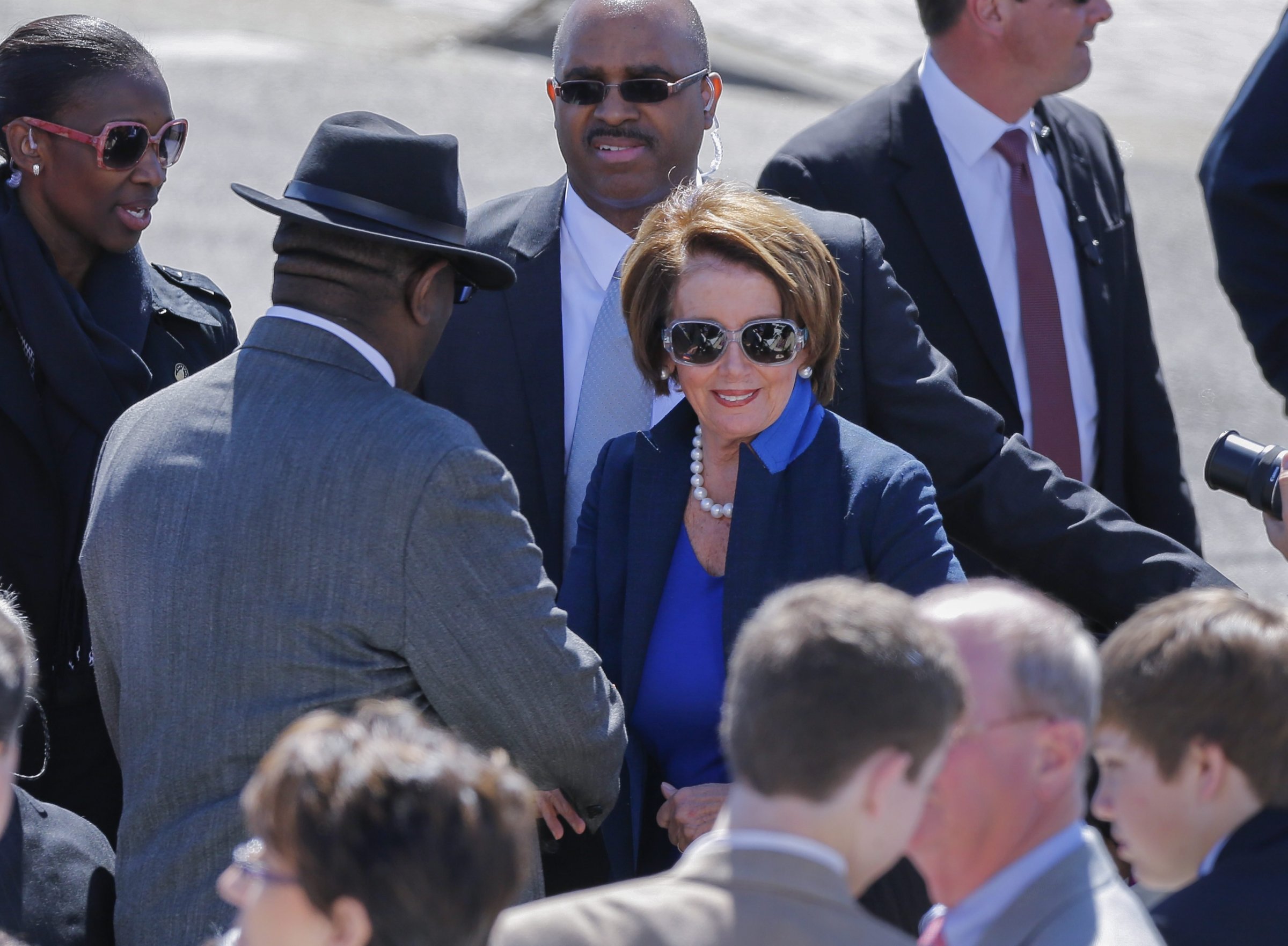
For members of Congress in Selma Saturday, the history of the Voting Rights Act was clear, but its future remained murky.
As they listened to President Obama and other speakers mark the events leading to the passage of the 1965 law protecting the rights of black voters, both Republican and Democratic lawmakers in attendance celebrated a milestone of the civil rights movement.
But they did not agree on what will come next for voting rights in the United States.
In 2013, the Supreme Court made huge changes to the Voting Rights Act, eliminating a “pre-clearance” cause which allowed the Department of Justice to vet any changes in voting laws in areas with a history of discrimination. Congress could restore that part of the law by making some legislative changes, but so far it has not.
In the meantime, Republican-led state legislatures have added new identification requirements and curtailed voting periods in what they say are efforts to fight voter fraud and streamline elections. Democrats argue these laws are designed to suppress the votes of minorities and called for the law to be fixed.
“One hundred Members of Congress have come here today to honor people who were willing to die for the right it protects,” President Obama said in a speech at Selma. “If we want to honor this day, let these hundred go back to Washington, and gather four hundred more, and together, pledge to make it their mission to restore the law this year.”
See Barack Obama's Historic Event in Selma
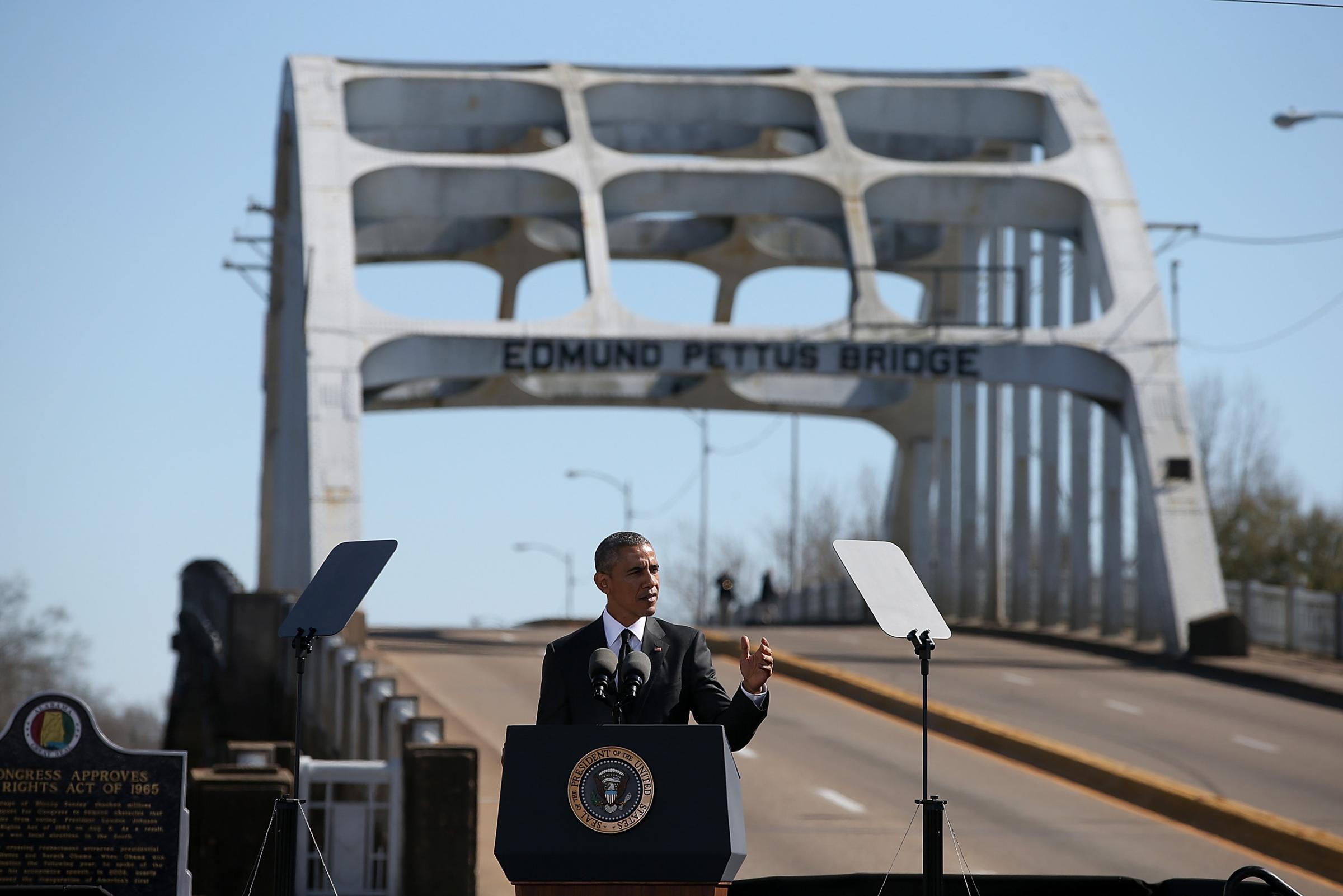
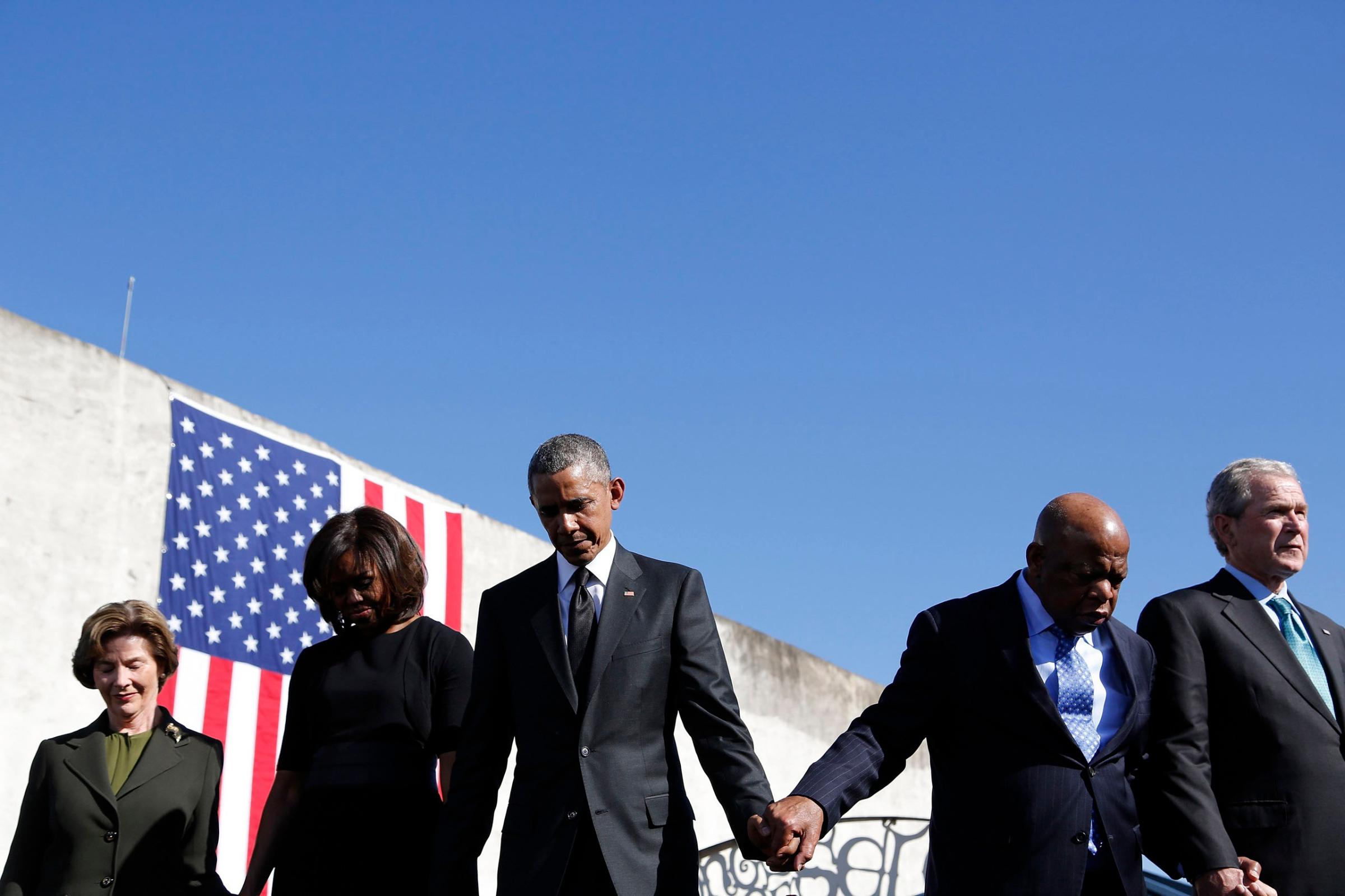
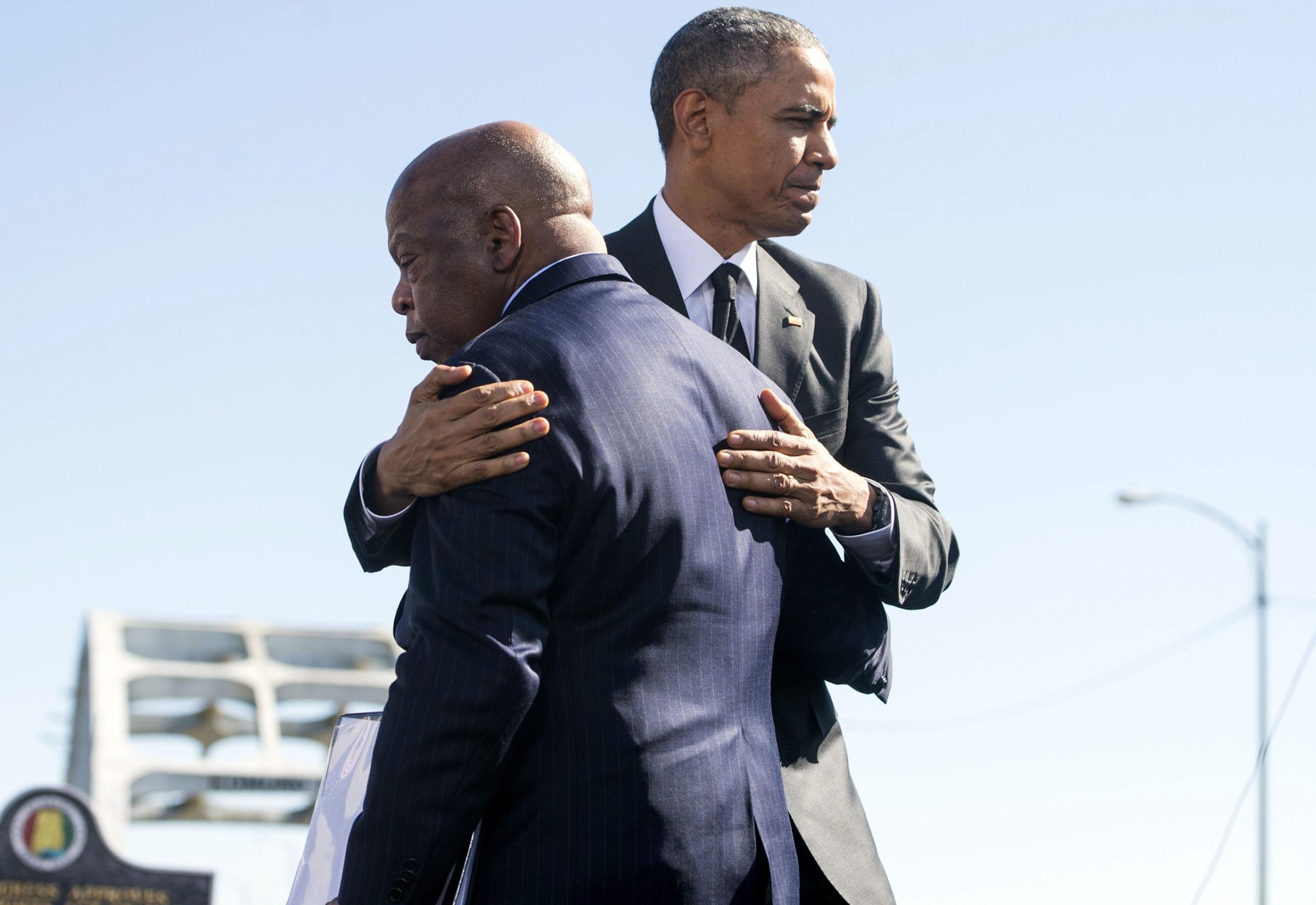
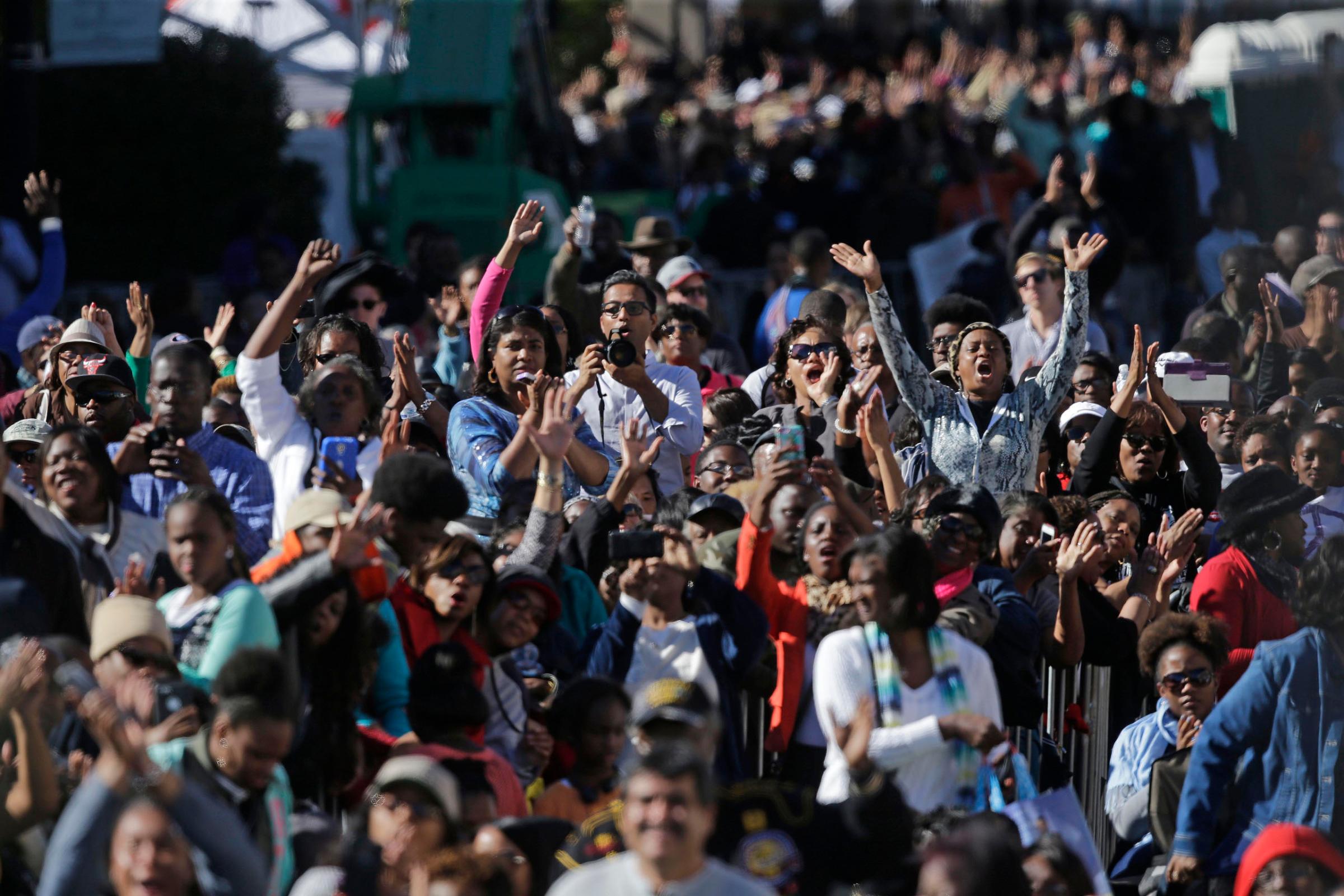
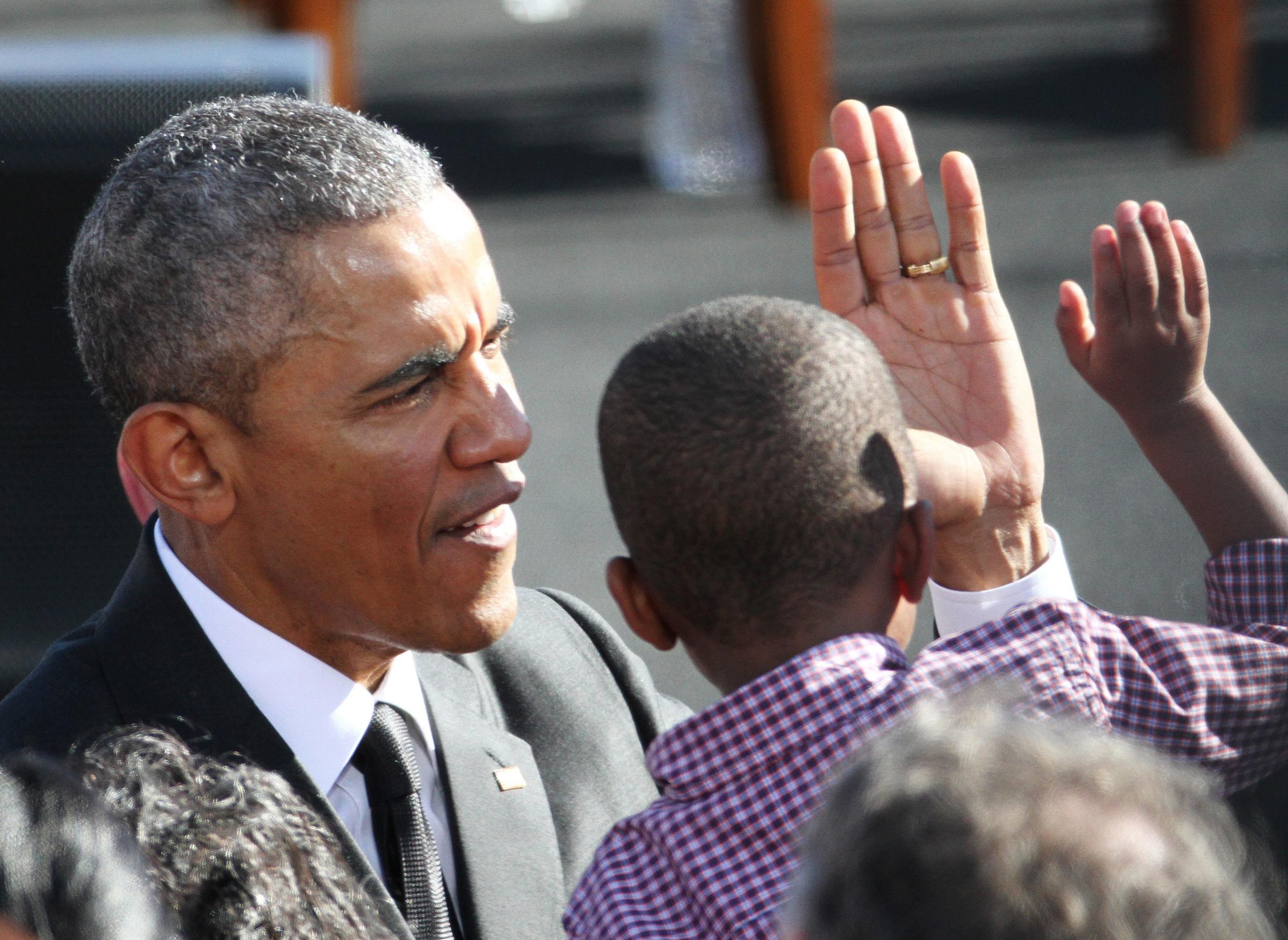
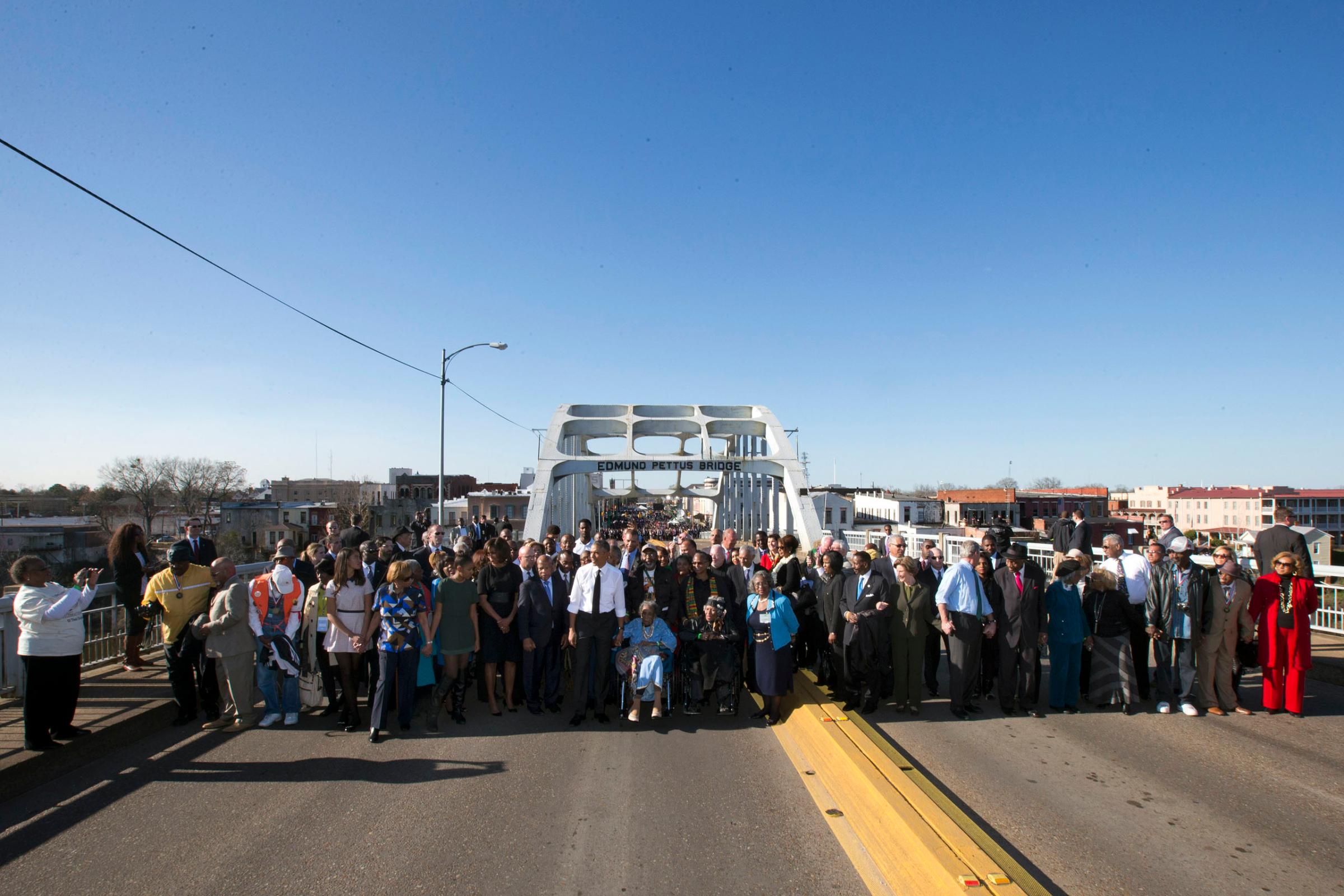
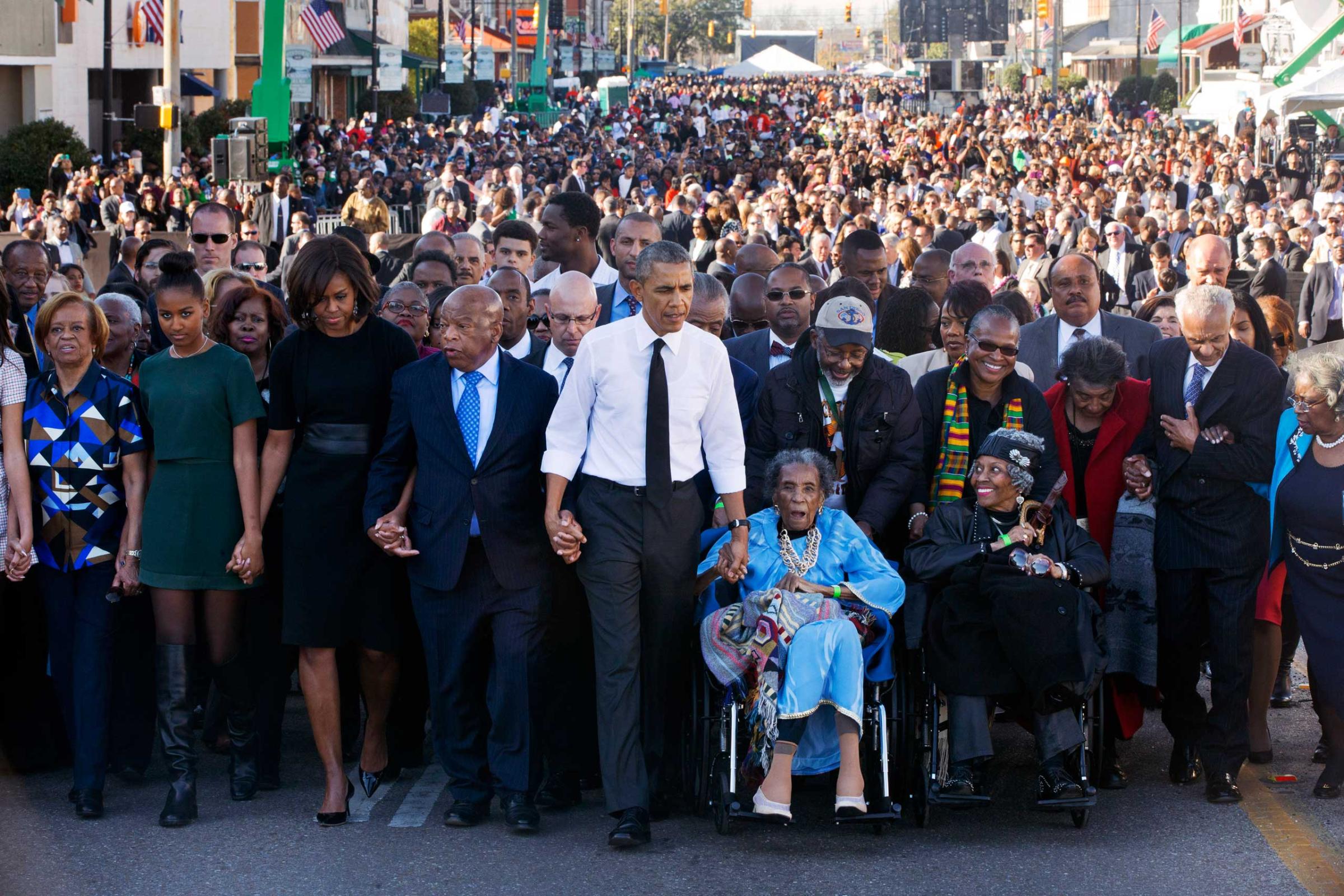
Yet the path forward for the law is a long and winding one.
The Voting Rights Act was twice been extended by Republican presidents, but in recent years voting rights has become a partisan issue. Assistant House Democratic Leader Jim Clyburn, who agitated for voting rights with Dr. Martin Luther King in the early 1960s, blamed the GOP. “There’s rhetoric to the effect of, ‘We want to impede voting, because when voting is low, we win,'” he said.
Republican commitment to Voting Rights was also called into question by the level of attendance on the trip. While much of the Democratic leadership attended the bipartisan coalition, House Majority Leader Kevin McCarthy only joined at the last minute, after criticism that no Republican leaders in Congress were attending.
But Republicans on the trip bristled at the implication that the GOP opposed voting rights. “If you look back at the ‘60s at who supported the Civil Rights legislation, it was Republicans more so than Democrats. The history of racial equality has included both parties consistently,” said Republican Sen. Tim Scott of South Carolina, the first black Senator elected from the South since Reconstruction. “What we’ve done, to sully it sometimes, is to try to put it into a partisan politics prism so as to spew venom towards one side, so we will stigmatize one party as being more racially accepting than another.”
Last month, a bipartisan bill to strengthen the Voting Rights Act was introduced by Republican Rep. Jim Sensenbrenner and Democratic Rep. John Conyers, but so far it’s gotten little traction or public attention. Democrats hope the trip will motivate lawmakers to jumpstart discussions on the bill, if not begin to craft new legislation themselves. “People have to vote,” said House Minority Leader Nancy Pelosi. “They don’t have to vote Democratic, they just have to vote. If you don’t vote, you don’t count.”
But the bill enjoys little Republican backing, and seven of 11 GOP co-sponsors have dropped their support since last year (though some have said they would consider supporting a different version of the bill.)
“The question right now is: what’s the right bill?” said Democratic Sen. Elizabeth Warren in an interview on Saturday. She said she hadn’t yet given the Sensenbrenner-Conyer bill a close look, but added that she’s “now committed to talking to more of my colleagues about a stronger bill.”
Still, despite the political quagmire of 2015 partisanship, some of the lawmakers left Selma more optimistic than they came. “People ask me, ‘do you think change is possible?'” asked Warren. “How can you be in Selma and believe that change is not possible? How can you be in Selma and believe that change is not necessary?”
More Must-Reads from TIME
- Why Trump’s Message Worked on Latino Men
- What Trump’s Win Could Mean for Housing
- The 100 Must-Read Books of 2024
- Sleep Doctors Share the 1 Tip That’s Changed Their Lives
- Column: Let’s Bring Back Romance
- What It’s Like to Have Long COVID As a Kid
- FX’s Say Nothing Is the Must-Watch Political Thriller of 2024
- Merle Bombardieri Is Helping People Make the Baby Decision
Write to Charlotte Alter / Selma, Ala. at charlotte.alter@time.com